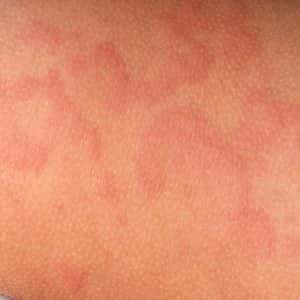
Q. I have a chronic case of hives. When I was first diagnosed, seven weeks ago, I was given a steroid shot and a six-pack of prednisone and told to take Benadryl at night and Zyrtec during the day. My doctor sent me to a dermatologist who said I need to be on steroids at triple the dose.
Since the dose I was already on gave me unbelievable acid reflux, I told him there has to be another way. He prescribed some other drugs that clearly are not working. At first the hives came and went, but the last couple of days they are constant.
The constant itching keeps me awake and I’m worn out and miserable. Is there anything natural I could take? I am clearing stuff out of my diet like gluten, sugar and sodas, but so far it has made no difference. This condition is like having a permanent case of the measles.
A. Cleaning up your diet is not a bad idea, but it won’t necessarily get rid of hives. The cause of chronic hives often remains mysterious.
A new study suggests that adding 4,000 IU vitamin D3 to your daily regimen might be helpful (Annals of Allergy, Asthma and Immunology, online Feb. 7, 2014). In this trial, people with chronic hives were randomly assigned to take either 600 or 4000 IU vitamin D3 in addition to their antihistamines and other medicines. Although those taking the high-dose vitamin did not use fewer antihistamines, their symptoms were significantly less troublesome at the end of three months.
Make sure the vitamin D you take is vitamin D3. Another recent study has shown that vitamin D2 supplements can actually lower levels of vitamin D3 in the body (Nutrients, Dec. 20, 2013).
Millions of people have too little vitamin D, especially as the winter draws to a close. To learn more, we suggest our Guide to Vitamin D Deficiency.

